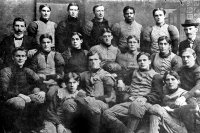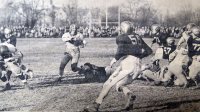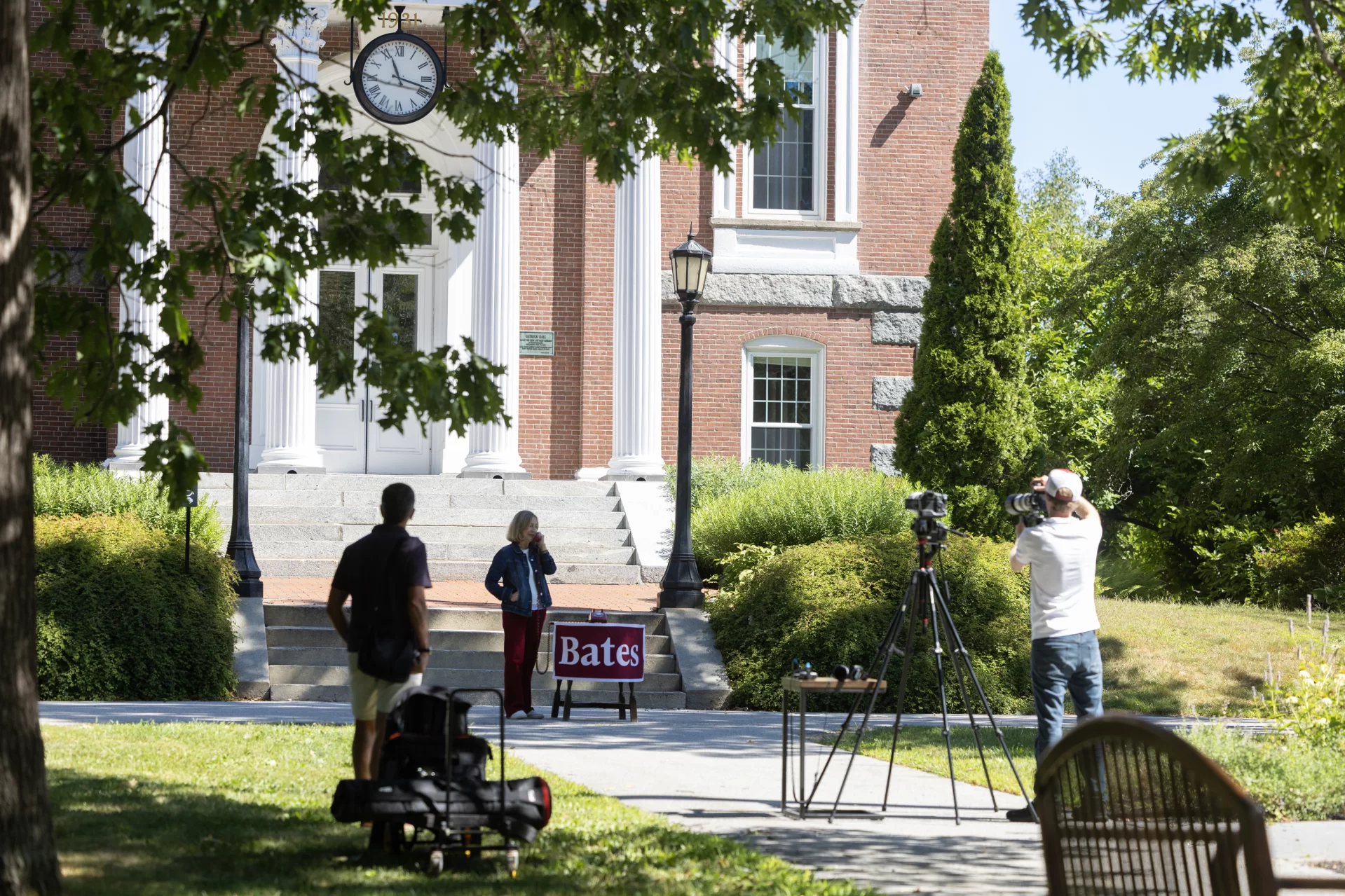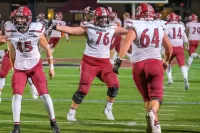
Over the phone from Dallas, Al Topham ’41 bellowed his answer to my question, not sounding like anyone’s idea of a 96-year-old man:
“Not when you’re trying to win! And we were trying to win!”
I had asked Topham, a former Bates lineman, if preseason training for three weeks at a New Hampshire boys camp back in the late 1930s had seemed like a long time.
The place was Camp Wonalancet, a now-bygone boys camp in Eaton Center, N.H., that Bates football used for a few years before World War II and at least once after.
Back then, classes didn’t begin until late in September, so the month was open for off-campus training.
“I’ll remember it always,” said Topham. (He advised me that he’d likely talk for a long time. “You can hang up anytime you want. Won’t be the first time.”)
A lineman who played offensive and defensive tackle, Topham was a two-time All-Maine selection.
“For my day, my time, and my place, I was a well-known football player,” he says. A Dallas resident for many years, he became a renowned skeet shooter and a member of the National Skeet Shooting Association Hall of Fame.
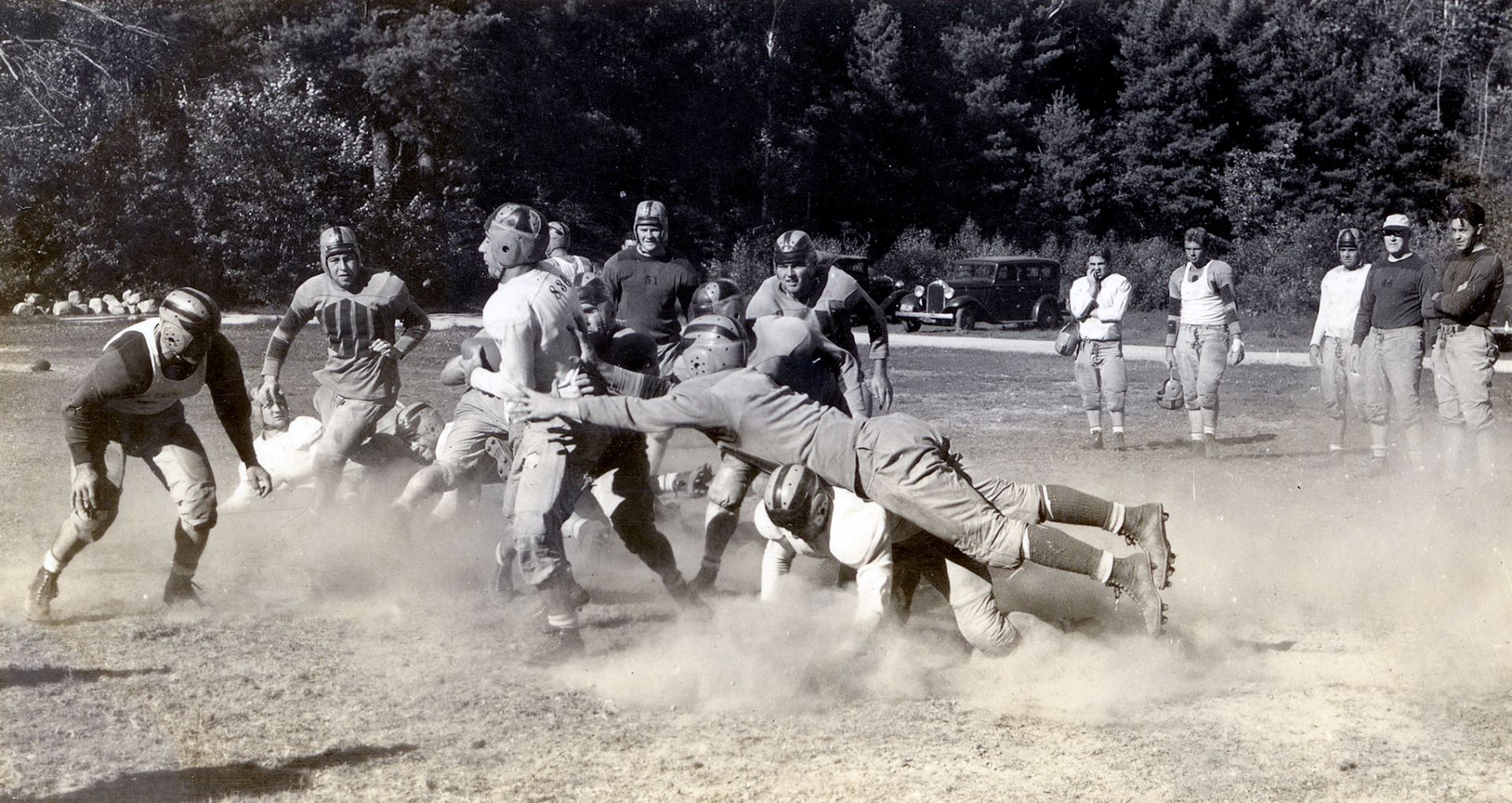
Tops among his memories of Wonalancet was the great Hurricane of 1938, which swept through New Hampshire on Sept. 21. The cabins had tin roofs, and as the wind blew and branches rained down on the cabins, “it sounded like mortar rounds,” Topham recalls. He would know, having served as a Marine in the Pacific during the war.
After the hurricane, practice the next morning was postponed because “there were big timbers on the fields,” he says. “We had to move all that trash off the fields before we could practice.”
Topham says he moved into the starting lineup during the first game that year as Bates was getting hammered by Dartmouth.
He recalls the Bates coach, Dave Morey, yelling at no one in particular: “Somebody get me a tackle! Somebody do something.” Except he was “a little more profane than that. After that, I played.”
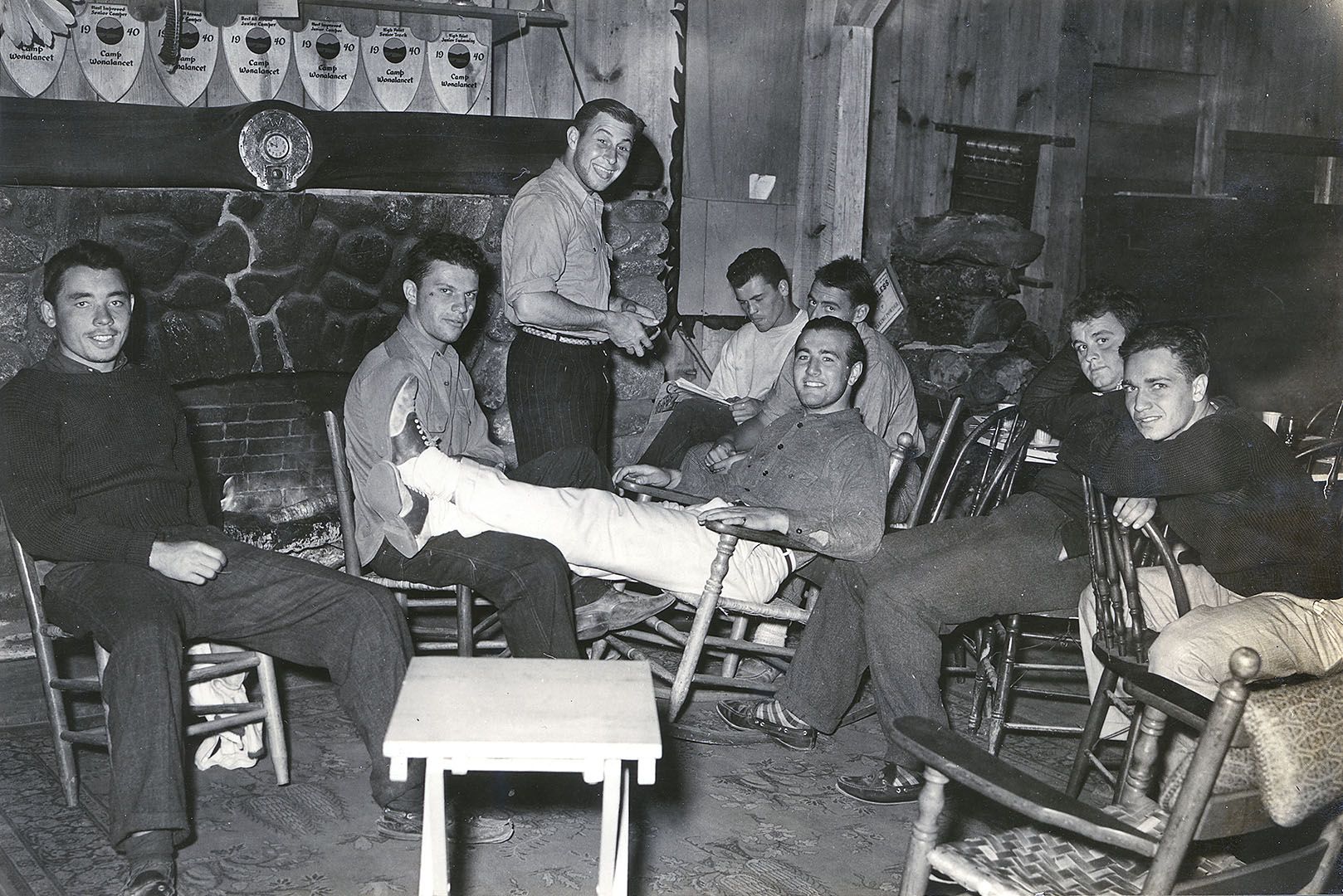
Among his teammates, Art Belliveau ’41 “was the one of the sharpest guys who ever hit the ground.” The four-year standout in football, basketball, and baseball was an “athlete of the highest order.” Belliveau, who died in 2015, later coached and served as director of athletics at Edward Little High School in Auburn.
Belliveau was the best, but as a group, the Bates backs didn’t mesh, Topham said, a requirement in the old single-wing offense where four backs needed to work well together. One back was so vain he refused to wear thigh pads so he’d look slimmer.
“There was dissension,” he says. “But I’m just a tackle. All I did was play football. I didn’t get into the bullshit.”
